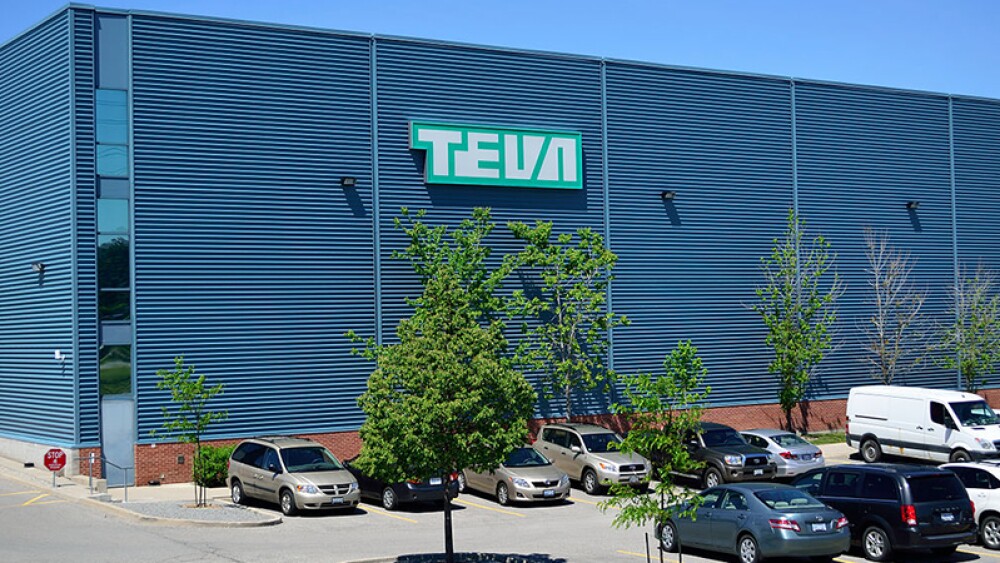February 14, 2017
By Alex Keown, BioSpace.com Breaking News Staff
JERUSALEM – Since Feb. 10, shares of Teva Pharmaceuticals have been on the rise following reports the company was considering selling off or spinning off its branded generics business in an effort to reduce debt, Bloomberg reported this morning.
Teva reported its debt at the end of 2016 was $35.8 billion, which was down nearly $10 billion from the previous year.
While Bloomberg reported Teva’s generics business is valued in the billions, the Israel-based company’s first course of duty is to tap a new chief executive officer. Former CEO Erez Vigodman abruptly left his position earlier this month after serving only three years in the job. During a call with reporters earlier on Feb. 13, interim CEO Yitzhak Peterburg said the company’s primary focus for 2017 will be to extract synergies from the Actavis deal, implementing efficiency measures, generating cash and paying down debt. Many analysts have criticized the deal to acquire the Actavis brand, ’s generics business, for $40.5 billion, saying the price was too high.
In its quest to consolidate debt, Teva could consider spinning off its branded generics into its own business unit, according to reports. The company could also sell off non-core assets, which would include its active pharmaceutical ingredients business, Bloomberg reported.
Teva is facing a tough immediate future. It has been embroiled in legal action with Mexican drugmaker Rimsa and in December paid out $519 million to settle parallel civil and criminal charges that it allegedly violated the Foreign Corrupt Practices Act when it paid bribes to foreign government officials in Russia, Ukraine, and Mexico between 2002 and 2012. Additionally, Teva’s top branded drug, Copaxone, which is used to treat multiple sclerosis. The drug accounts for about 16 percent of Teva’s sales, but is facing a patent challenge by a generic drug developed by Novartis. Patents protecting the drug expired in 2015. The company was able to side-step some of the potential losses by changing dosing levels, but that is now being challenged by a generic version developed by Mylan . In August, the U.S. Patent and Trademark Office ruled that two patents on Teva’s MS drug Copaxone were unpatentable, which paves the way for other generic drugmakers. Despite that tough outlook for Copaxone, global sales rose 6 percent in the fourth quarter of 2016 to $1 billion. If those generic challengers are approved though, sales of Copaxone would likely diminish, adding to the company’s debt concerns.
In the meantime though, not only did earnings for Copaxone increase during the last quarter, but overall the company saw an increase in profit primarily from sales of drugs it acquired in the Actavis deal, Reuters reported.
Despite that increase in earnings, Teva reaffirmed yesterday that it was a lower revenue forecast for the year. The company first announced it was cutting the prediction last month. For 2016 Teva posted revenue of $21.9 billion, an 11 percent increase over 2015. The company said that was primarily based off the Actavis acquisition.
“While we continue to manage through a turbulent and constantly evolving industry, we are committed to execute against our strategy with more diversified revenue sources and profit streams, all backed by strong product development engines in both generics and specialty,” Peterburg said in a statement.





